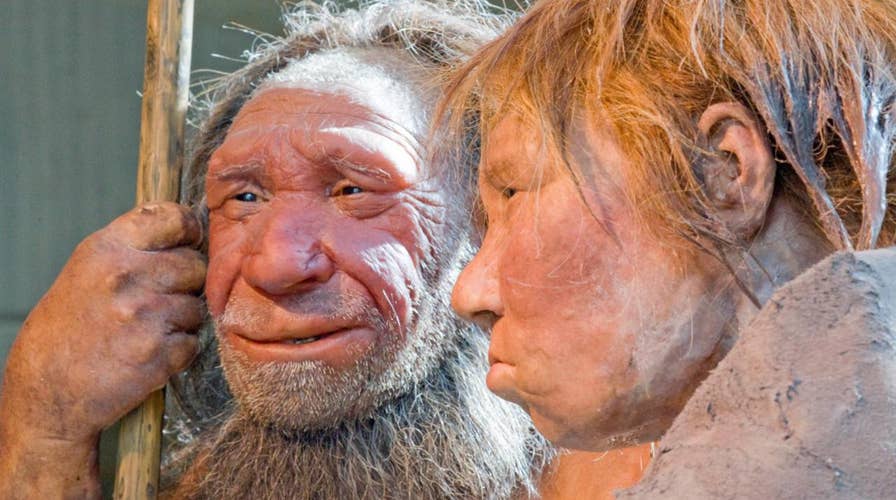Bones reveal Neanderthal child was eaten by large bird
Archaeologists in Poland have identified the prehistoric bones of a Neanderthal child, that appears to have been eaten by a large bird.
Archaeologists in Poland have identified the prehistoric bones of a Neanderthal child eaten by a large bird.
The small hand bones were found in a cave in Southern Poland’s Malopolska region, according to Science in Poland, a public information service devoted to Polish science. Discovered a few years ago, the remains were thought to be animal bones until they were analyzed earlier this year.
Tiny holes in the bones indicate that they passed through a large bird’s digestive system, according to Professor Pawel Valde-Nowak of the Jagiellonian University in Krakow. It’s not clear, however, whether the bird attacked and ate the young Neanderthal or scavenged the remains of a dead child.
CLIMATE CHANGE KILLED OFF NEANDERTHALS, STUDY SAYS
Believed to be about 115,000 years old, the bones are the oldest human remains ever discovered in Poland.
Experts from the Jagiellonian University and Washington University in St. Louis confirmed that the remains are digital bones from a child’s hand.
The Archaeological Museum of Krakow and the Polish Academy of Sciences also participated in the research, which will be published in the Journal of Paleolithic Archaeology.
PREHISTORIC TOOTH REVEALS SURPRISING DETAILS ABOUT LONG-LOST HUMAN 'COUSINS'
The closest human species to homo sapiens, Neanderthals lived in Eurasia for around 350,000 years. Scientists in Poland report that Neanderthals in Europe mostly became extinct 35,000 years ago. However, there are a number of theories on the timing of Neanderthals’ extinction, with experts saying that it could have occurred 40,000, 27,000 or 24,000 years ago.
In a separate study, researchers recently reported that climate change may have played a more important part in Neanderthals’ extinction than previously thought.
Fox News’ Chris Ciaccia contributed to this article.
Follow James Rogers on Twitter @jamesjrogers









































